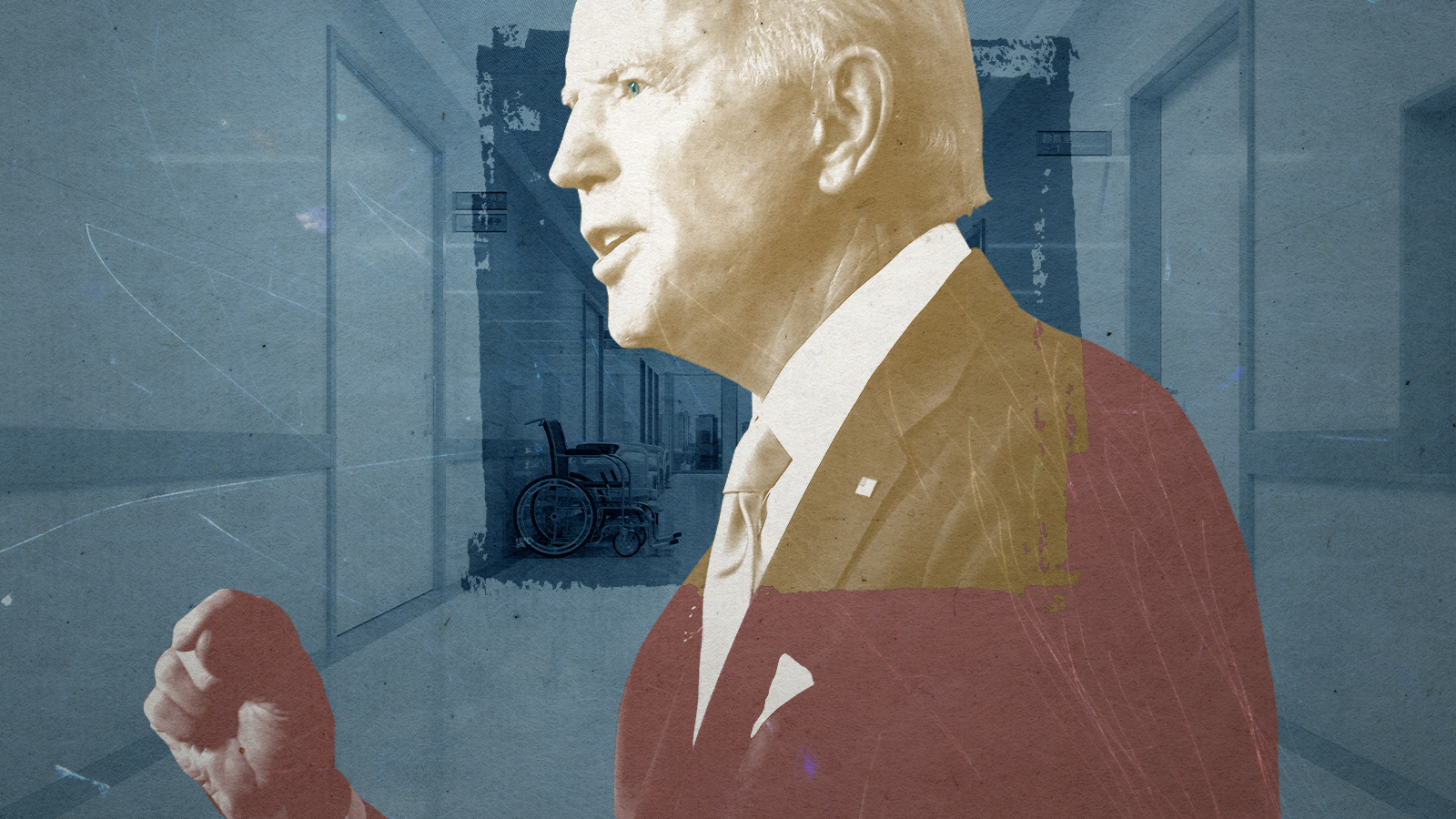The risk in a Biden reversal of medical conscience protections


A free daily email with the biggest news stories of the day – and the best features from TheWeek.com
You are now subscribed
Your newsletter sign-up was successful
"The Biden administration is preparing to scrap a Trump-era rule that allows medical workers to refuse to provide services that conflict with their religious or moral beliefs," Politico reported Tuesday, citing "three people familiar with the deliberations." The exact scope of the prospective update isn't clear, but the Department of Health and Human Services confirmed it's coming.
In one sense, the change is irrelevant. Introduced in 2019, the rule in question would have denied federal funding to health-care organizations that don't allow staff to opt out of participation in abortions, procedures related to gender transition, assisted suicide, and the like. But it was blocked in federal court before it took effect and so has never been implemented. The Biden administration's "change" would merely confirm the status quo. Moreover, cases where health-care workers are forced to perform services they believe to be immoral (or fired for refusing to do so) seem to be relatively rare. They do happen, but most states already have laws on the books providing at least some conscience protections for medical professionals.
Still, the federal reversal is a step in the wrong direction on two counts. One is a matter of principle: The government technically isn't forcing doctors who believe abortion is murder to perform abortions. This isn't a straightforward mandate, because the doctors can, of course, quit their jobs instead. But federal endorsement of organizational policies that require employees to choose between conscience and livelihood does not exactly evince a civil libertarian spirit. It isn't a clear-cut state violation of freedom of conscience or religious liberty, yet it does give the government's blessing (and dollars) to private rejection of very serious claims of conscience.
The Week
Escape your echo chamber. Get the facts behind the news, plus analysis from multiple perspectives.

Sign up for The Week's Free Newsletters
From our morning news briefing to a weekly Good News Newsletter, get the best of The Week delivered directly to your inbox.
From our morning news briefing to a weekly Good News Newsletter, get the best of The Week delivered directly to your inbox.
Then there's the practical side of things. Politico quotes Jacqueline Ayers of Planned Parenthood, who says the change would "help ensure people can access the health care and information they need when they need it." If this revocation — of a rule, again, that never took effect and is already broadly echoed at the state level — changes anything, I suspect the opposite would be true.
Were medical professionals widely required to work in violation of their consciences, many would leave their fields, change their specialties, or outright refuse to take on certain patients — something doctors, in particular, will always be able to do by citing facially neutral concerns like workload. In the worst case, I can imagine situations where a medical worker forced to act against conscience would deliberately misdiagnose or mistreat a patient, rationalizing that this is the lesser sin.
Compelling any violation of conscience is a very grave proposal. Compelling it of medical staff is uniquely risky, too.
A free daily email with the biggest news stories of the day – and the best features from TheWeek.com
Bonnie Kristian was a deputy editor and acting editor-in-chief of TheWeek.com. She is a columnist at Christianity Today and author of Untrustworthy: The Knowledge Crisis Breaking Our Brains, Polluting Our Politics, and Corrupting Christian Community (forthcoming 2022) and A Flexible Faith: Rethinking What It Means to Follow Jesus Today (2018). Her writing has also appeared at Time Magazine, CNN, USA Today, Newsweek, the Los Angeles Times, and The American Conservative, among other outlets.
-
 What are the best investments for beginners?
What are the best investments for beginners?The Explainer Stocks and ETFs and bonds, oh my
-
 What to know before filing your own taxes for the first time
What to know before filing your own taxes for the first timethe explainer Tackle this financial milestone with confidence
-
 The biggest box office flops of the 21st century
The biggest box office flops of the 21st centuryin depth Unnecessary remakes and turgid, expensive CGI-fests highlight this list of these most notorious box-office losers
-
 Trump’s EPA kills legal basis for federal climate policy
Trump’s EPA kills legal basis for federal climate policySpeed Read The government’s authority to regulate several planet-warming pollutants has been repealed
-
 House votes to end Trump’s Canada tariffs
House votes to end Trump’s Canada tariffsSpeed Read Six Republicans joined with Democrats to repeal the president’s tariffs
-
 Bondi, Democrats clash over Epstein in hearing
Bondi, Democrats clash over Epstein in hearingSpeed Read Attorney General Pam Bondi ignored survivors of convicted sex offender Jeffrey Epstein and demanded that Democrats apologize to Trump
-
 Judge blocks Trump suit for Michigan voter rolls
Judge blocks Trump suit for Michigan voter rollsSpeed Read A Trump-appointed federal judge rejected the administration’s demand for voters’ personal data
-
 US to send 200 troops to Nigeria to train army
US to send 200 troops to Nigeria to train armySpeed Read Trump has accused the West African government of failing to protect Christians from terrorist attacks
-
 Grand jury rejects charging 6 Democrats for ‘orders’ video
Grand jury rejects charging 6 Democrats for ‘orders’ videoSpeed Read The jury refused to indict Democratic lawmakers for a video in which they urged military members to resist illegal orders
-
 Big-time money squabbles: the conflict over California’s proposed billionaire tax
Big-time money squabbles: the conflict over California’s proposed billionaire taxTalking Points Californians worth more than $1.1 billion would pay a one-time 5% tax
-
 Trump links funding to name on Penn Station
Trump links funding to name on Penn StationSpeed Read Trump “can restart the funding with a snap of his fingers,” a Schumer insider said
